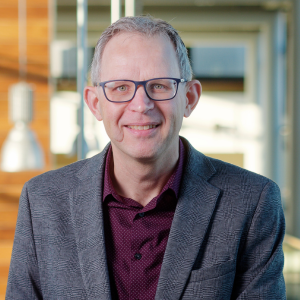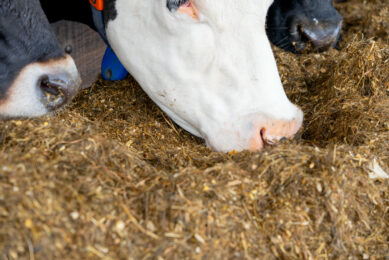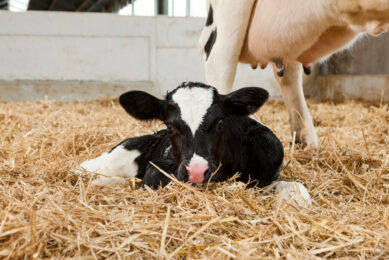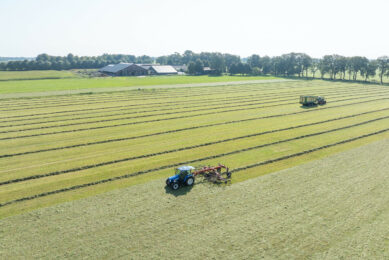Saskia Korink, CEO Trouw Nutrition: Seeking balance between agriculture and the planet
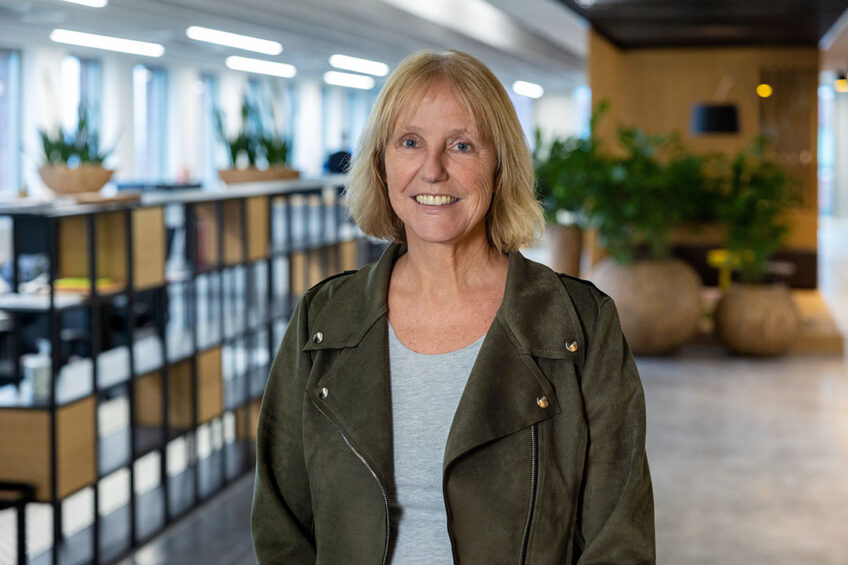
Saskia Korink has been CEO of Trouw Nutrition since 2020. On the global market, the company is embracing sustainability, as that is where great strides need to be made in the coming years. “We think it is important that Trouw Nutrition is not associated with deforestation.”
With loads of international experience, Saskia Korink returned to the Netherlands in 2018. The Covid-19 pandemic had just started when she was invited to be the next CEO of Trouw Nutrition, which is headquartered in the Netherlands.
What was your mission when you took over from Harm de Wildt, who retired as CEO?
“Firstly, my mission is to make sure we have a clear strategy, and that we have a global organisation that works together smoothly.
“More specifically, I asked how I could navigate the company through the Covid-19 crisis, the severity of which was becoming clearer by the day at that time. In the Netherlands, it started in March, and in May I was asked whether I would be interested in the role of CEO. At that time, things were going relatively well; consumers started buying more, so our business was thriving. When I finally started in August, the world had changed and it was not clear where things would be heading.”
And there hasn’t really been a normal month again since
“For sure. I started in the middle of a time when everyone was working from home. So what I wanted was to show myself as the new CEO. Under normal conditions, I would have visited all the teams and been visible. And that just wasn’t possible – only remote contact via the laptop was possible. In addition, I have had quite a lot of transitions within my own leadership team. So there were a lot of new people in my team with whom I wanted to build a close relationship, and that was not possible using Zoom or Teams. I found that very difficult.”
Did Trouw Nutrition feel the Covid-19 crisis?
“It certainly wasn’t business as usual. Our salespeople were no longer able to visit customers. The ongoing business and orders – they could be dealt with using the phone or the web. But things are different when you’re trying to sell something new – or just want to get to know customers better… That type of meeting just didn’t happen anymore.
“In our production plants, we had difficulties, obviously. People couldn’t attend work for a while, and extra investments were needed so everyone could be at work safely, making sure that we didn’t infect one another.”
You spent over 10 years in Brazil. Your husband is Brazilian and you speak Portuguese fluently. How has that contributed to your career?
“It always has an enormous impact when you spend some time abroad. I used to be a typical Dutch girl, that is, very straightforward. Ending up very deeply in Brazil’s culture has changed me. I grew to become a much warmer person. It also has an impact on your personality when taking a deep dive into a totally different culture. That applies to the whole of Latin America. And lessons you learn in an emerging market can be applied again in other regions, in Asia or Africa, for example.”
What is the Trouw Nutrition strategy with regard to China?
“China is still in full swing trying to rebuild its pork industry after African Swine Fever hit in 2018. We are seeing a giant recovery in their pork output. They are also building very large production systems. That is extremely interesting for us to do business with. We expect this growth to continue; obviously, their aim is to become entirely self-sufficient.
“One other interesting direction is that of antibiotic reduction (AMR), both in feed as well as in pig production itself. For this, we have all kinds of solutions, so at Nutreco we see further development of antibiotic reduction solutions as a strategic priority as well as to be able to help our customers in China.”
Sustainability is an important theme within Trouw Nutrition. How will that become visible in the years to come?
“Sustainability is part of everything we do. It starts at the sourcing side. We have been working hard to gather the most sustainable ingredients. If we source soy from South America, we make sure that it is not related to deforestation. Our goal is to be able to get to 100% deforestation-free ingredients in the next few years. For that reason, we are also working on traceability.
“In addition, we are also looking for alternative ingredients – to be able to complement our portfolio of potential proteins and other ingredients.
“Sustainability, however, also plays an enormous role at the farm. We have always been busy supporting our customers to produce as efficiently and sustainably as possible. That is all related to keeping animals healthy and maintaining productivity levels as high as possible. In doing so, we create more output with a lower level of input.”
Is sustainability something customers ask for? Or is it something the company chooses to pursue?
“On the issue of deforestation, we have told one another that we think it is important that Trouw Nutrition is not associated with deforestation.
“In general – in some countries sustainability is starting to become more of an issue than in others. That will lead to more explicit questions. When the pressure grows, customers will demand more. We feel this is our duty, irrespective of that pressure. If our mission is ‘Feeding the Future’, then it’s clear that sustainability is in everything we do.”
Is it possible to work sustainably and stay competitive at the same time?
“The nice thing about sustainability is that you can produce more efficiently, and that means you can produce animal protein at a lower cost. So sustainability and economic advantage often go hand in hand. If you make fewer by-products, and if animals stay healthier leading to the use of fewer antibiotics, and if animal productivity increases as well, then that is all positive.”
Surely farmers need to be open to these ideas?
“Of course! We all know that feed can be up to 75% of total farm costs. If a customer aims only for low costs, then perhaps in the short term they could think things are going well, but in the longer-term perhaps not after all. So we are trying to steer our conversations in the direction of return on investment. Obviously, we understand as well that these kinds of concepts are difficult to implement during economically adverse times.”
In the Netherlands, they will aim for fewer animals in animal husbandry. Does that type of sustainability make you happy?
“No. Our vision is that a reduction of the livestock herd is not the only solution. If the herd is necessary, then all that will happen is that it will be relocated. Our vision is that we’ll have to make sure that there is more balance between our customers and their surroundings.”
Alternative protein sources – do you consider these an interesting market for Trouw Nutrition?
“We are looking into those anyway. We can use alternative protein sources as feed ingredients, not only as replacements for animal protein in human food.
“We also have an investment department within Nutreco that has small involvement in alternative protein companies. For instance, we have bought shares in the cultured meat company Mosa Meat, and we are also looking into fish – if only because we’d like to understand where all this is heading. Eventually, we will have to feed a growing world population. And we can do that; I’m upbeat about that. Alternative proteins will become part of the portfolio of solutions. The question is: How big will the percentage be?”
What are the main expectations for the next 10 years?
“We think that sustainability will become very important in the next few years – and it already is. Consumers will continue to become more vocal and that will increase the pressure on our value chain. If we have sustainable solutions, we can indeed provide food for 9 to 10 billion people without destroying the planet.
“Digital will also be a megatrend. Soon we will get a generation of customers who grew up entirely digitally – who will do everything digitally. As a market player, we will have to be part of that development.
“And we have already touched on alternative proteins; I think they will certainly play a role. The most interesting thing is, what will that role be? It could be that the share of animal protein will go down and that it will change its appearance.
“I could imagine that perhaps even when my young daughters are old, a piece of steak may have become a niche category that shares the shelf with other protein sources. And what will that mean for our industry? Alternative proteins will become a very interesting trend, I think, as it has an impact on all parts of the world.”
So we will be able to feed 9.2 billion people? Are you optimistic about that?
“Yes, I am optimistic. I do think, however, that there’s work to do – not only for companies but also for consumers. We produce a lot of leftovers in the food chain and we have all kinds of solutions to reduce those. That’s not just us – that’s also a matter of how consumers pick that up.”
Join 13,000+ subscribers
Subscribe to our newsletter to stay updated about all the need-to-know content in the dairy sector, two times a week.


